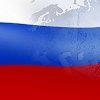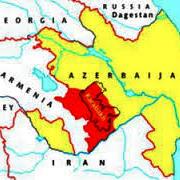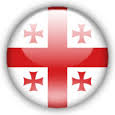This is the first in a series of posts on the concept of "Russkiy Mir."[1] I begin by looking at the International Festival of Literature that was held recently in Tartu, Estonia. The extensive festival program contained strong Russian cultural components. One of my favorites was a Russian literary evening, which consisted of a lovely gathering of Russian-speaking Estonian writers.
The celebrity of the festival was Andrey Makarevich, singer-songwriter of the highly popular, long-time band "Mashina Vremeni." His fame grew recently when he became one of the few Russian artists to openly challenge Moscow's belligerent policy toward Ukraine, which resulted in him being ostracized by Russian officialdom.
A few days before the festival, Makarevich appeared in a short video (made by a Ukrainian TV crew) where in answer to the question: What lessons have we drawn from World War II?, he said: Perhaps the deadly consequences of disregard for a dictator's intentional destruction of international law and annexation of neighboring territories.
The allusion toward Russia and Ukraine was obvious.
Makarevich made two appearances at the festival: a philosophic lecture titled "What is Beauty" and a talk show with Artemy Troitsky, a well-known Russian music expert who now resides in Estonia. My takeaway from both his appearances was his avoidance of political questions.
Clearly, for most of the audience, with people sitting on the floor because the auditorium couldn't fit all his fans, Makarevich is the epitome of the free-thinking artist, both in regard to Soviet times and again now with the re-emergence of Soviet elements via the Putinists.
Many expected Makarevich to talk politics, yet he intentionally did not. He is certainly not afraid of speaking out on risky topics. I think he limited his political remarks because even though he is one of the most explicitly politicized personalities on the Russian art scene, he simply hates politics. It seems that he deems the world of politics incomparably inferior to a far more important realm: culture and the arts.
In fact, all we heard from him about politics is that the beginning of the 21st century was a culturally “empty time” for Russia, when nothing new was produced. His comments on Ukraine consisted only of: "If you support the war, you betray rock tradition starting with John Lennon."
During the panel discussion, Troitsky's own cognitive dissonance with Russia’s cultural mainstream was evident. He said, "I don't like the restaurant music of bandits, however patriotic it might be." He said he doesn't take long-time Russian pop singer Oleg Gazmanov seriously as a musician. Gazmanov’s tunes often lean toward Soviet nostalgia and have been widely promoted by the official Russian media. For Troitsky, the Soviet Union was not a superpower, but kind of a big North Korea, relying on uniformity in thought and personal conduct as its pivot.
Both Troitsky and Makarevich, undoubtedly, are prominent figures in the "Russian world" concept however divergent this might be from the Kremlin version. Their disagreement with the Kremlin line is primarily aesthetic, and only a touch political. In their open disagreement with its dominating narrative, they don't try to contest each point. But their voices are powerful.
Artists such as these do not feel the need to commit themselves to the binary political logic produced by Kremlin strategists. They favor the aesthetic over politics proper. They are able to make the distinction between beautiful and ugly – between authentic and artificial – and this can often resonate among people far more than Kremlin-promoted stories of Russia vs. the West.
[1] My idea for this blog series came about due to the steady politicization of the "Russian world" (“Русский мир“) concept, which was initially conceived as an inclusive device for reconnecting Russian-speakers around the globe with Russia. However, with the ongoing frenzy over Ukraine, it has become rather exclusive. Very different interpretations of the “Russian world” have surfaced. For example, Rostislav Ischenko, head of a Russian analytical center, claimed that "Kadyrov, Rosenbaum, and Kobzon are parts of the ‘Russian world’ while [Ksenia] Sobchak, Nemtsov, and Makarevich are not." To my mind, this is the worst development in the whole idea” It should be connecting rather than disconnecting, engaging rather than disengaging, and de-bordering rather than border-making. This is why I title this series “Russian worlds,” in plural, because we are seeing an archipelago of identities and discourses, each representing interpretations of Russia and what it means to be Russian.











